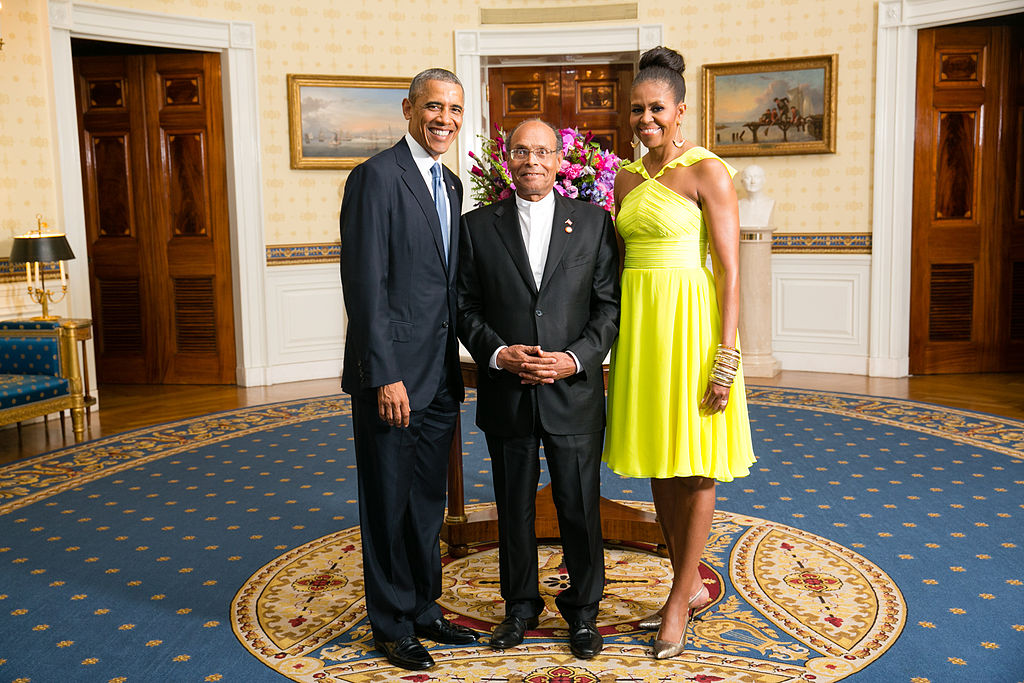World Leaders Forum: Tunisian President Moncef Marzouki
 In an earnest address at today’s World Leaders Forum, Tunisian president Dr. Mohamed Moncef Marzouki challenged his audience to let Tunisia change their notions about democratization in the Arab World.
In an earnest address at today’s World Leaders Forum, Tunisian president Dr. Mohamed Moncef Marzouki challenged his audience to let Tunisia change their notions about democratization in the Arab World.
In 2011, Tunisia drew the world’s attention as the birthplace of the Arab Spring. Since that time, it has proved to be the only Arab nation to successfully pursue a transition to democracy, a transition that will culminate with nationwide elections this November. Selected by Tunisia’s Constituent Assembly to serve as interim president, Marzouki has played a key role in shaping this process. His speech today focused on the challenges and triumphs of the past four years.
Highlighting the uniqueness of Tunisia’s ongoing democratic transition, Marzouki suggested that the Arab Spring instead be termed the “Arab Volcano.” Volcanoes are explosive and violent, he argued, and indeed the uprisings of 2011 and 2012 caused a crisis of state and a crisis of society in every country they touched. However, volcanoes also create “new ground and fertile soil.” With a constitution in place and preparations for elections underway, Tunisia is working to make that soil bear fruit.
Marzouki also called Western observers to task for their pessimism regarding the Arab states’ capacity for democratization. Citing a 2013 article in The Economist that discussed why “Arab countries have so miserably failed to create democracy, happiness or (aside from the windfall of oil) wealth,” Marzouki expressed his frustration with the pervasive image of Arab states as failed states. “I have suffered my entire life from this racist point of view,” he said. Much of his frustration came from the West’s refusal to take any responsibility for the problems facing the Arab world. Moving forward, he called upon the West to support Tunisia’s economy so that democratization does not fall prey to poverty.
A colleague of the president briefly took the podium to present Tunisia’s proposal for the creation of an International Constitutional Court, an initiative that Tunisia will pursue at this week’s United Nations assembly. This new multilateral institution would give citizens a place to hold their governments accountable for violations of constitutional principles and, more broadly, human rights. It is not a wholly unprecedented idea; Australia proposed a similar court in 1945 and Switzerland revived the effort as recently as 2008. However, Tunisia’s most recent proposal appears to be short on details regarding the jurisdiction of the court and the ways in which its decisions would be enforced.
As a long-time advocate for democracy and human rights, Marzouki accepted the challenges facing Tunisia even as he expressed pride in his country’s success. His clear-sighted address indicated that it is perhaps not career politicians but rather committed intellectuals that possess the vision and tenacity to bring about democratic reform. As Columbia University president Lee Bollinger said in his uncharacteristically heartfelt closing remarks, “We are all rooting for you.”
